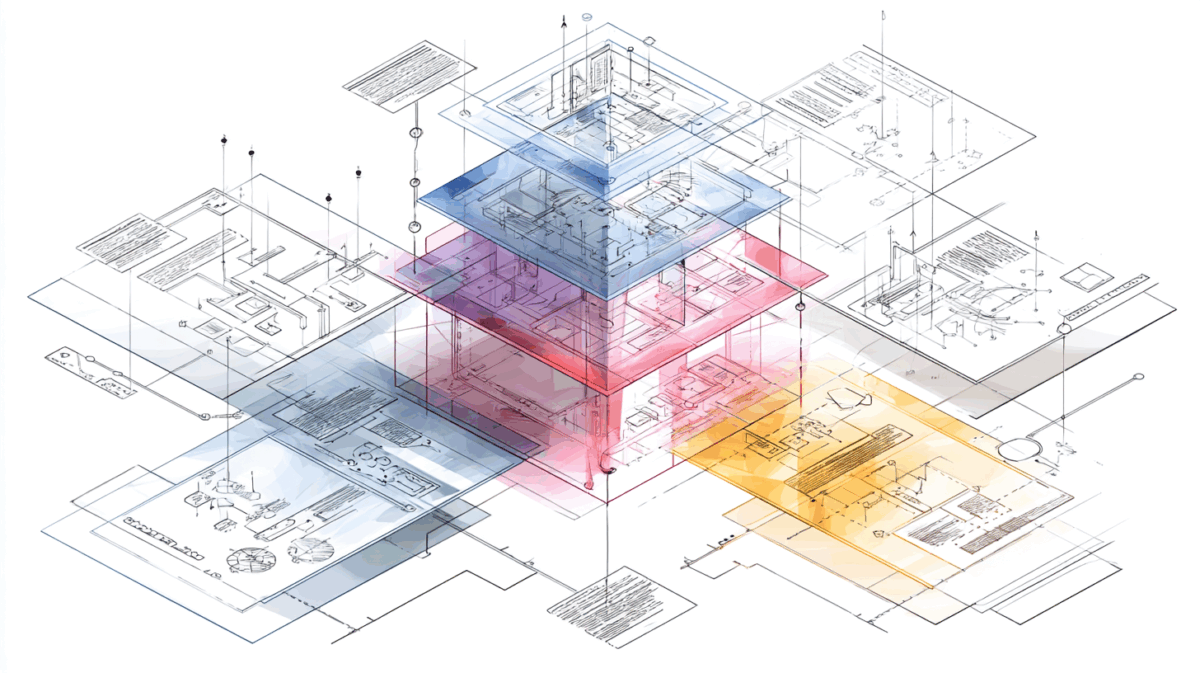Inventions and Patents
We provide daily assistance with the registration and legal protection of patents in Italy, across Europe, and worldwide.
Every invention holds significant economic potential: securing a patent transforms technical innovation into an exclusive, enforceable, and transferable right. A patent enables the holder to manufacture, market, or license their invention with the certainty of solid legal protection.
Without filing, however, no legal safeguard exists: premature disclosure may lead to the irreversible loss of rights, allowing third parties to freely access and exploit the invention.
Canella Camaiora® supports inventors, companies, and research teams with a multidisciplinary approach that combines legal strategy with technical competence. For the sixth consecutive year (2020–2025), the firm has been recognized by Il Sole 24 Ore–Statista as one of Italy’s top law firms for Intellectual Property, a distinction based on an independent survey of attorneys, in-house counsel, and clients, attesting to the quality and excellence of our work.
Do you want to receive now a personalized quote? Click on the “CALCULATE A QUOTE” button below. Answer a few simple questions and you’ll get a quote in less than two minutes.
An original technical solution can represent a decisive competitive advantage. Registering a patent means consolidating the economic value of innovation and preventing third parties from misappropriating it. Patent protection is an indispensable element in any industrial strategy aimed at investments, partnerships, licensing, or technology transfer.
However, legal protection arises only upon filing. Any prior disclosure—even if unintentional—may irreversibly destroy the possibility of securing patent rights. For this reason, timing is critical to the strategic success of any invention.
Canella Camaiora® provides comprehensive assistance throughout every phase of the patent lifecycle, including:
Patent or utility model?
Choosing between a patent and a utility model depends on the nature of the innovation and its inventive step.
In Italy, an invention patent protects new and non-obvious technical solutions for a maximum of 20 years from the filing date. A utility model, by contrast, is suited for functional improvements to existing products and offers protection for 10 years (initially 5 years, renewable once).
Both forms require formal filing to secure exclusive rights.
Concrete examples clarify the distinction: the invention of the internal combustion engine (1876) by Nikolaus Otto or the PageRank algorithm (1994) by Google were patented as revolutionary inventions. By contrast, a telescopic broom enabling adjustable height or an improved bottle closure system would typically qualify for protection as utility models—practical innovations, perhaps not groundbreaking, but highly valuable.
International patent protection strategy
Patent protection is inherently territorial: a patent safeguards an invention only within the jurisdiction where it is granted. Accordingly, careful planning of an international protection strategy is crucial to achieving industrial and commercial objectives.
The first step is filing an Italian patent application with the Italian Patent and Trademark Office (UIBM) for national protection.
Those seeking broader coverage may file a European patent application with the European Patent Office (EPO). Once granted, the European patent must be validated in each designated state. Alternatively, the European patent with unitary effect offers uniform protection across participating EU member states, streamlining administration and significantly reducing maintenance costs.
Another option is the international patent application under the Patent Cooperation Treaty (PCT), administered by WIPO. This procedure provides provisional protection in over 150 countries through a single filing, after which the applicant must enter national or regional phases to secure final grants in the chosen jurisdictions.
Effective territorial extension planning not only maximizes innovation protection but also optimizes costs, preserves commercial flexibility, and builds a solid competitive advantage globally.
Patent infringement, legal defense, and damages
Patent infringement constitutes one of the most serious violations of industrial property rights. Unauthorized use of a protected invention exposes the infringer to significant legal consequences, both in terms of the immediate cessation of the infringement and the obligation to compensate the rights holder for the damages incurred.
In cases of counterfeiting or unlawful use, the patent holder is entitled to seek urgent injunctive relief to block the unauthorized exploitation, to obtain the seizure of counterfeit goods, and to claim full compensation for the damages suffered. Recoverable damages include not only loss of profits, corresponding to lost business opportunities, and actual damages, related to direct economic loss, but also moral damages, arising from the harm caused to the reputation, commercial image, and credibility of the inventor or the rights holder.
Canella Camaiora® is widely recognized for its excellence in patent litigation. The firm provides comprehensive assistance, from the preparation of technical and legal opinions to the management of both extrajudicial and judicial proceedings, through to the enforcement of final decisions.
Our approach is guided by unwavering determination: operating effectively in this sector requires swift, precise, and forceful action, protecting exclusive rights and enhancing both the economic and moral value of innovation.
Acting without delay and with surgical precision is essential to strengthen the commercial position, limit damages, and consolidate a lasting competitive advantage in the market.
Inventions and Patents
First Intellectual Property Appointment
Patentability verification and prior art search
Drafting and filing patent applications
Patent protection
FTO - Freedom To Operate
Protection of trade secrets and know-how
Advice on utility models
Do you want to receive now a personalized quote? Click on the “CALCULATE A QUOTE” button below. Answer a few simple questions and you’ll get a quote in less than two minutes.

Sounds and scents as trademarks: historical evolution, registrability and distinctive power
This contribution examines the evolution of protection for sound and olfactory trademarks within the European and Italian legal systems, with particular attention to the abolition [...]

Fatal road traffic accident: family members’ rights and compensation for damages
This article examines the rights of the family members of a person who has died in a road traffic accident and the steps required to [...]

When can a slogan be registered? (EUIPO common practice)
Trademarks and slogans often operate on the same communicative level, but they follow different legal logics. A slogan may be effective from an advertising perspective [...]

Can a newspaper’s name be reused? (Milan Court, order of 29 December 2025)
There is a particular category of assets which, in the law of information, does not cease to exist even when it apparently disappears from newsstands. [...]

“Replaced by AI”? The Rome Court clarifies the limits of dismissal
In recent months, a ruling by the Rome Court (no. 9135 of November 19, 2025) has attracted particular attention, which, according to some news outlets, [...]

Veterinary malpractice and compensation for non-economic damages (Florence Court of Appeal, Dec. 23, 2025)
In the context of contractual disputes, this article comments on the judgment of the Florence Court of Appeal, Fourth Civil Division, issued on December 23, [...]

The former partner who becomes a competitor: the drop in turnover as evidence of unfair competition – a comment on Venice Court, Order of 15/05/2024
A former partner who becomes a competitor, taking clients, know how and turnover with them. Can this be regarded as conduct contrary to fair competition? [...]

When a company’s value depends on know-how… that can walk out the door
In innovative companies, a significant part of value is invisible: it is not machinery, not a factory building, not a patent. It consists of ideas [...]

Employee migration, reverse engineering or unfair competition? (Italian Supreme Court, Civil Division, order no. 18958/2023)
The article examines a decision upheld by the Italian Supreme Court in the field of unfair competition and unlawful use of industrial secrets, focusing on [...]

When a project submitted to an Italian Public Administration is protectable (and when it is not)
It happens more often than one might think: a professional, a company, or a creative team invests time, skills, and resources to develop a project [...]

Corporate know-how: when a former employee risks criminal liability
Many entrepreneurs associate the “theft” of know-how with material copying: a duplicated file, a cloned project, an identical design. In reality, protection may apply even [...]

CES 2026: what is changing in technology (and why waiting is no longer an option)
CES 2026 (the Consumer Electronics Show in Las Vegas) marked a decisive turning point: artificial intelligence is no longer a novelty, but a baseline condition. [...]